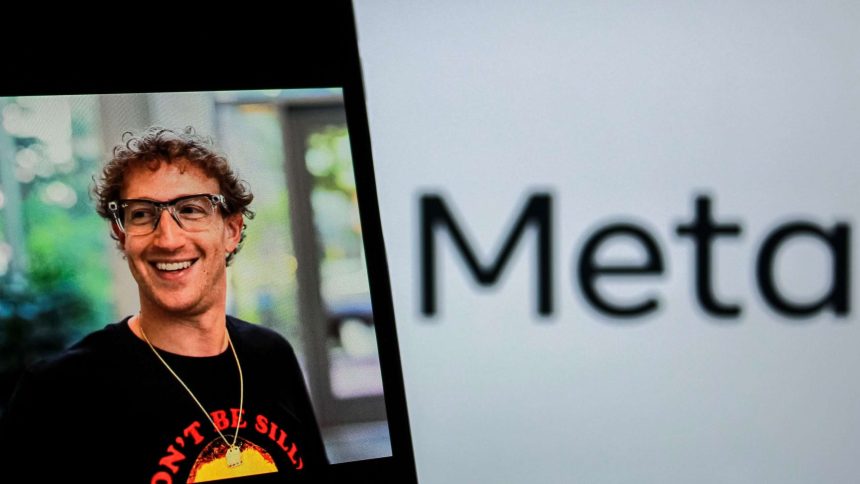Meta CEO Mark Zuckerberg has ignited controversy with a striking forecast: in the near future, people who don’t wear AI glasses will be at a “pretty significant cognitive disadvantage.”
The statement, delivered during Meta’s Q2 earnings call, is more than a futuristic prediction—it signals Meta’s aggressive bet on a wearable AI-first future. Zuckerberg described smart glasses as the “ideal form factor” for always-on, real-time interaction with generative AI. Unlike smartphones or laptops, these glasses would serve as an ambient, hands-free interface for digital intelligence.
“Over time, I think that there’s going to be an important and very powerful computing platform that people use that’s not just in their pocket, but that you wear,” Zuckerberg said. The Ray-Ban Meta smart glasses—capable of listening, recording, and integrating with Meta’s AI assistant—have reportedly tripled in sales compared to the previous year.
Zuckerberg’s Long-Term Goal
This aggressive vision aligns with Zuckerberg’s long-term goal of building what he calls a “personal superintelligence”—AI agents that understand users intimately and operate in sync with them. For Meta, it’s not just a product; it’s the cornerstone of its AI hardware strategy amid a $4.5 billion Q2 loss in its Reality Labs division.
However, the claim that not wearing AI glasses will put people at a cognitive disadvantage has drawn mixed reactions. Critics argue it weaponizes fear of missing out to push hardware adoption. Tech ethicists warn that this rhetoric mirrors earlier attempts to normalize always-connected devices, often without transparent conversations around privacy, consent, or mental health.
“The idea that one must be constantly ‘plugged in’ to AI to keep up raises critical questions—are we designing tools to enhance life or to replace how we live it?” questioned a Nairobi-based tech researcher.
Why It Matters
For Africa, the implications are particularly complex. While Zuckerberg’s vision may seem inevitable in Silicon Valley, many African nations are still grappling with stable internet access, digital literacy, and economic inequality. High-end wearable AI may become just another divide—further separating digital elites from the disconnected.
Yet the potential is not without hope. Smart glasses, if adapted properly, could revolutionize access for users with disabilities, boost real-time language translation, or help remote workers with AI-enabled task management. But without local innovation, African countries risk becoming consumers of yet another Western-driven wave of tech.
Zuckerberg’s comment is not just a product pitch—it’s a philosophical provocation. Will AI glasses become the next smartphone, essential for productivity and relevance? Or are we being nudged into a world where digital surveillance is stylish and opt-in?
As the tech world accelerates toward a wearable future, the rest of us must decide if we’re spectators or shapers of this next frontier. One thing is clear: the glasses are coming—but who they truly serve remains to be seen.
Talking Points
Cognitive Disadvantage or Capitalist Rebrand? Zuckerberg’s statement that people without AI glasses will be at a “cognitive disadvantage” reeks of a Silicon Valley narrative that equates technological adoption with intelligence.
It’s not just a product pitch—it’s a subtle way of saying: “If you’re not wearing what we build, you’re behind.” That’s not innovation; that’s intimidation cloaked in futurism.
Africa Is at a Crossroads: Consume or Create. While Meta pushes this new form of ambient computing, Africa must choose: do we sit back and become passive consumers of AI hardware built in the West, or do we begin investing in building our own adaptive smart tech ecosystems?
If we don’t, AI glasses will only widen the digital divide between the connected few and the excluded many.
Inclusion Rhetoric, Exclusion Reality. Meta frames AI glasses as revolutionary tools for accessibility and productivity, but in Africa, even basic access to smartphones and internet is still uneven. Are we really talking about inclusion, or are we reinforcing the technological class system? Who benefits from this leap forward—and who gets left behind?





